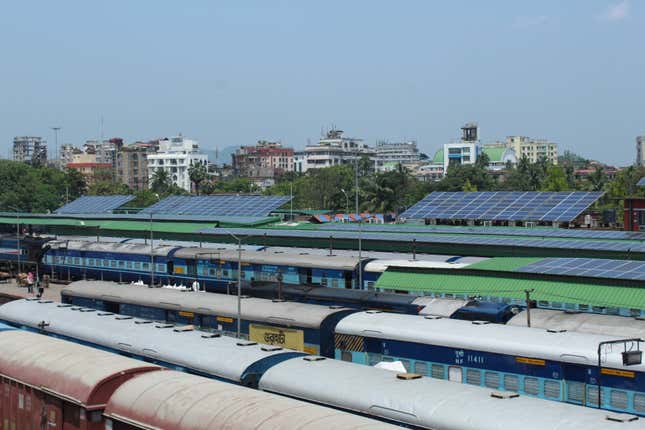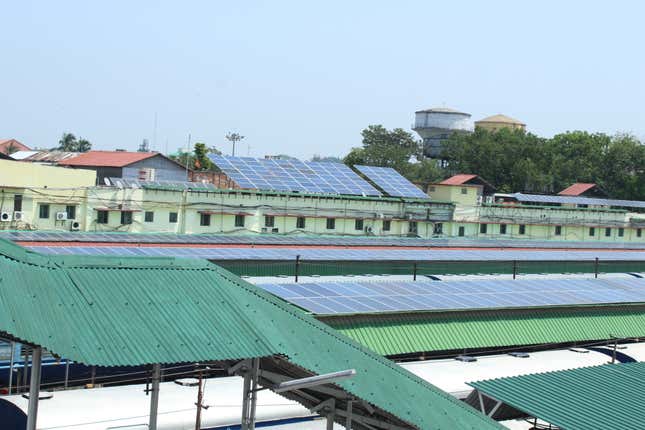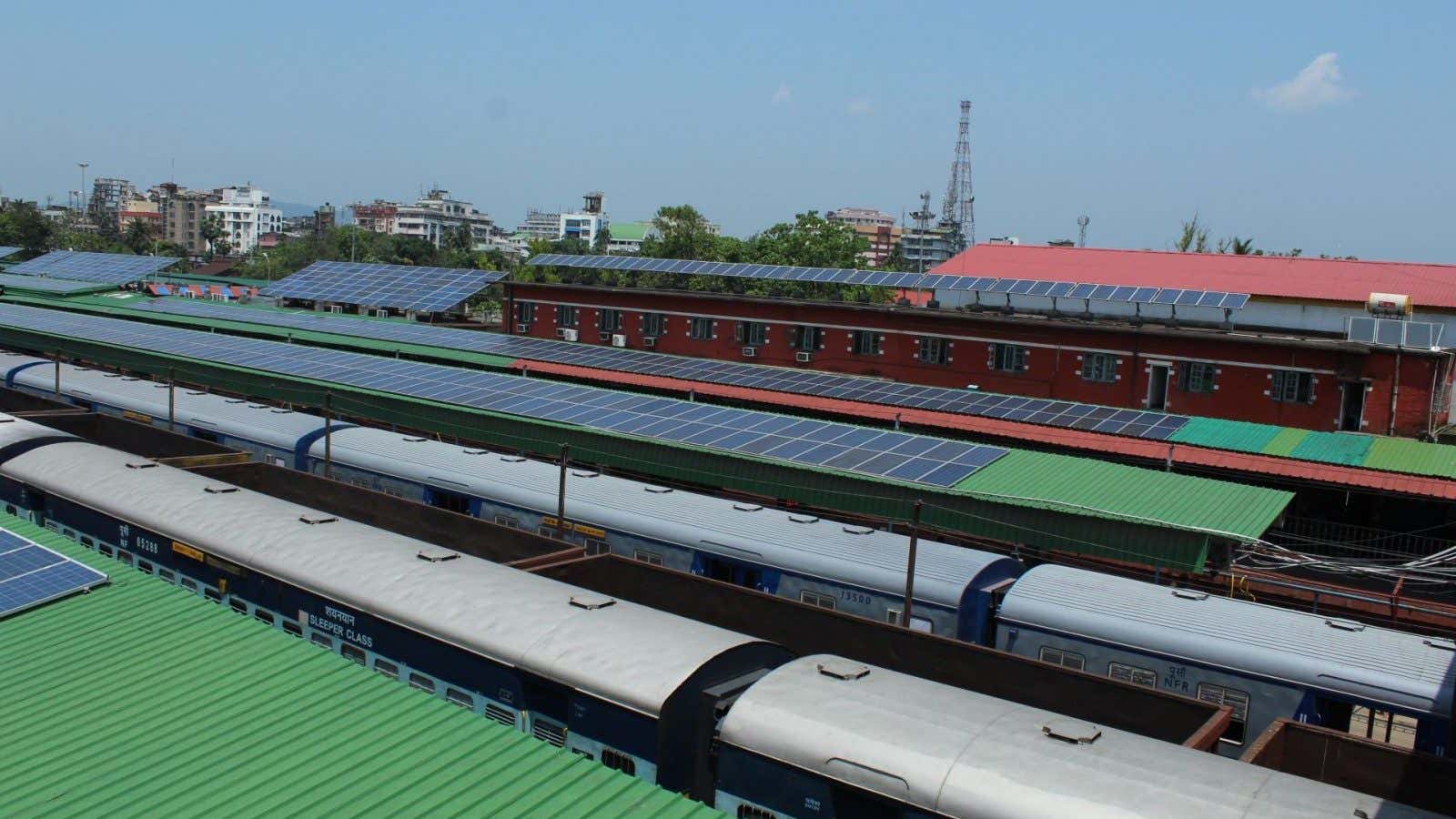After experimenting with solar-powered train coaches last year, India’s diesel-guzzling railways now have an entire station that runs on renewable energy.
The Guwahati railway station in the capital city of Assam is the first railway station in the country to be fully solar-powered. A major railway thoroughfare in India’s northeastern region, the station handles around 20,000 passengers every day.
The Guwahati railway station building has grid-connected rooftop solar panels totalling a capacity of 700 kilowatt (0.7 megawatt) that will cater to the electricity needs of the station, the coach depot, and the railway colony area, the Northeast Frontier Railway, an arm of the Indian Railways, said in a statement. This will help the railway network save around Rs67.7 lakhs (approximately $99,900) per year in electricity bills.
State-run engineering company Central Electronics executed the Rs6.7 crore (around $1 million) project, which has been funded by the Container Corporation of India (CONCOR), a subsidiary of the Indian Railways.


The Indian Railways is currently the country’s largest consumer of electricity and diesel and spent around Rs31,000 crore, or 18% of its operational expenses, on fuel in the financial year 2016. In part to bring down this burgeoning fuel bill, the state-run transportation network has been taking steps to transition to renewable energy for a few years now.
The solar-powered railway station initiative is part of the Indian Railways’ broader plans to put up 5,000 MW of solar power capacity to meet around 25% of its energy needs through renewable energy by 2025. In July last year, the Indian Railways rolled out the first set of train coaches with rooftop solar panels that powered the lights, fans, and information display systems inside. The coaches were used for suburban transit in New Delhi, and the railways estimate that each train with six solar-powered coaches could save around 21,000 litres of diesel every year, worth around Rs12 lakh.
Multiple other railway stations in small cities across the country, such as Mangaluru, Thiruvananthapuram, and Jaipur, too, are powered partially by solar and wind energy.
